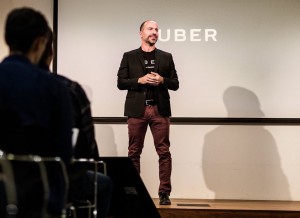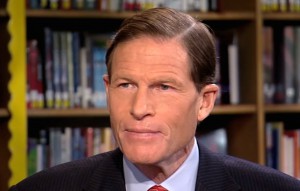
Uber CEO Dara Khosrowshahi agreed to end the company's practice of using only confidential arbitration to resolve issues.
Ride-sharing giant Uber responding to critics who feel it has tried to silence victims of sexual assault says it will stop using the forced arbitration contained in its terms of service.
The move comes after reports surfaced revealing at least 100 Uber drivers in the U.S. had been accused of sexually assaulting passengers in recent years, including one recent case in which a driver followed a female passenger after reaching her home and tried to force himself into her apartment. Critics have also accused the service of lax background checks that have allowed some convicted of sex crimes to go to work for the company.
Anyone using the Uber smartphone app to hail a ride was required to enter into confidential arbitration, even in the event of serious crimes, such as rape, committed by a driver. Going forward, Uber says it will now let victims, including passengers as well as drivers and employees, choose the venue in which to pursue their grievance, including the courts.
Separately, Uber said it will publicly track sexual assaults and other crimes, noting in its corporate blog that, “We commit to publishing a safety transparency report that will include data on sexual assaults and other incidents that occur on the Uber platform.”
(More than 100 Uber drivers accused of sex crimes. Click Here for the story.)

Sen. Richard Bluenthal (D-Conn.) pressured Uber to end its practice of forcing victims to use confidential arbitration.
Uber’s decision to reverse course was, in part, driven by an investigation by CNN that reported “at least 103 Uber drivers in the United States … have bee accused of sexually assaulting or abusing their passengers in the past four years.”
Critics also have claimed that Uber’s background investigation process is not extensive enough to prevent known felons, including those convicted of sex crimes, from climbing behind the wheel for the company. Like rival Lyft, Uber has struggled to find enough independent drivers to cover all its service areas as it continues to expand in the U.S. and abroad.
Concerns about crimes committed by Uber drivers has added to an array of problems for the industry giant. A frat boy corporate culture ultimately came to haunt co-founder and former Uber CEO Travis Kalanick, who was forced out last year.
His successor, Dara Khosrowshahi, has had plenty of challenges land on his lap since his arrival. That includes investigations into the possible use of illegal software to monitor competitors and even disrupt efforts to regulate the ride-sharing service.
(Click Here for more details about the self-driving Uber test vehicle killing a pedestrian.)
Uber has also run into a series of problems with its autonomous vehicle program. Kalanick made that a priority, publicly stating that by eliminating the need for drivers the service could drop costs so low it would be cheaper to use Uber than owning a personal vehicle.
But the program has run into a series of snags, most recently including a crash by an autonomous vehicle that killed a pedestrian on a suburban Phoenix roadway.
But rising concerns about crimes, including sexual assaults, threatens to scare away potential customers, especially women worried about reports of sexual assaults. Critics contend Uber used arbitration to keep a lid on news coverage, among other things.
The company’s move on arbitration came as Khosrowshahi came under increasing pressure from the likes of Connecticut’s Democratic Senator Richard Blumenthal, who wrote the CEO a letter in he “respectfully requested” Uber end the practice.
(Uber acquires bike-sharing company, Jump. Click Here for the story.)
Uber is also facing pressure to end the use of arbitration in other instances, including cases where employees claim they have been forced out of the company due to workplace sexual harassment.

